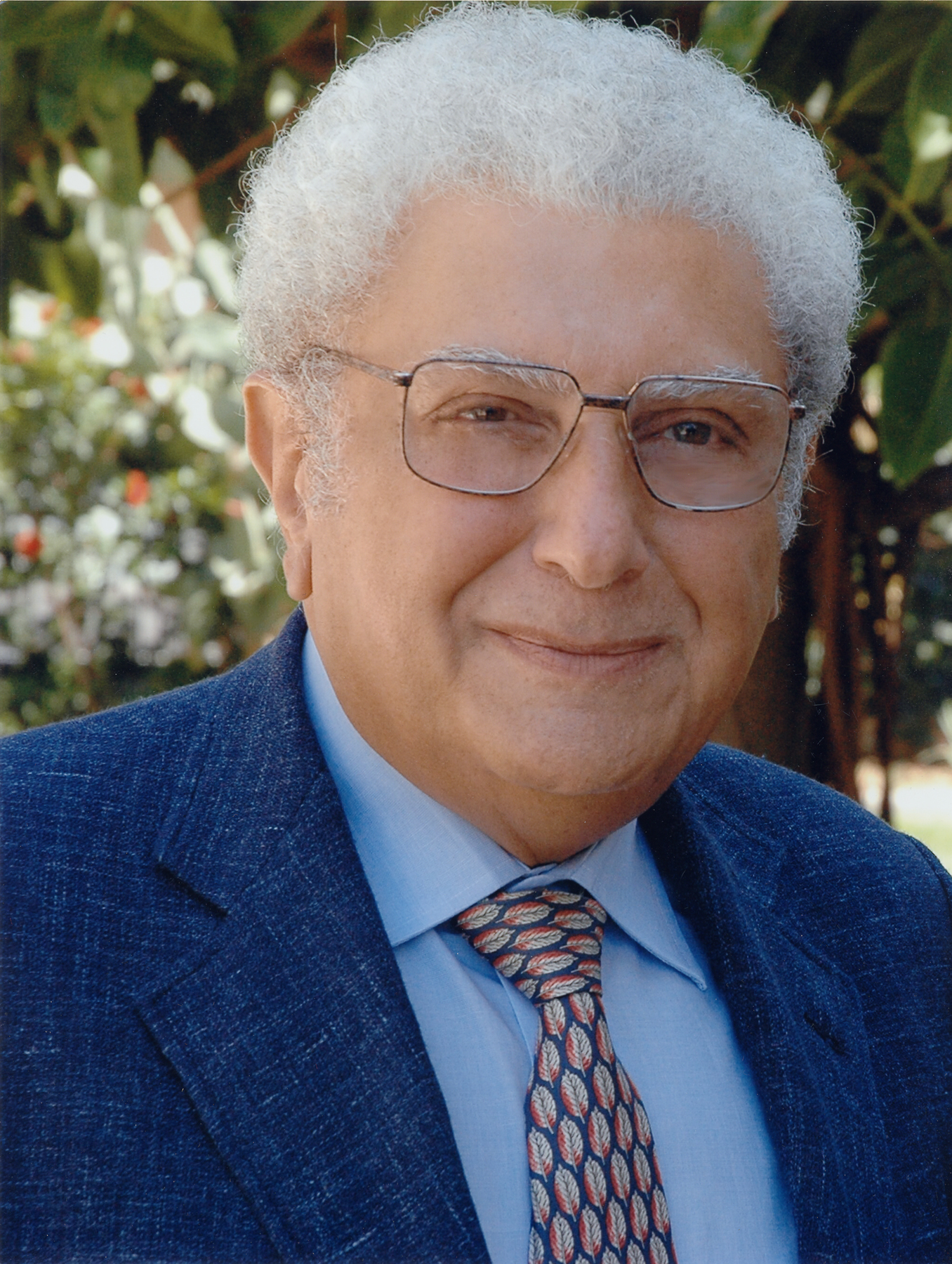DePaul
University College of Law will hold its commencement May 17 at the
Rosemont Theatre where some 280 students will receive their Juris
Doctors or Master of Laws degrees. The Rev. Dennis H. Holtschneider,
C.M., president of DePaul, will confer the degrees. M. Cherif Bassiouni,
DePaul emeritus professor of law, will address the graduating class.
The ceremony is scheduled to begin at 1:30 p.m.
 M. Cherif Bassiouni, DePaul emeritus professor of law, will address the College of Law’s graduating class on May 17 at the Rosemont Theatre where some 280 students will receive their Juris Doctors or Master of Laws degrees. Bassiouni will also receive an honorary degree at the ceremony. (Photo courtesy of M. Cherif Bassiouni)
M. Cherif Bassiouni, DePaul emeritus professor of law, will address the College of Law’s graduating class on May 17 at the Rosemont Theatre where some 280 students will receive their Juris Doctors or Master of Laws degrees. Bassiouni will also receive an honorary degree at the ceremony. (Photo courtesy of M. Cherif Bassiouni)Bassiouni,
who will receive an honorary degree at the ceremony, has spent much of
his life’s work advocating for human rights and practicing international
criminal law. In his 50 years with DePaul, he co-founded the
International Institute of Higher Studies in Criminal Sciences and
DePaul’s International Human Rights Law Institute. For decades, the
United Nations has chosen Bassiouni to conduct investigations when
heinous human rights crimes were suspected. His contributions to the
establishment of an International Criminal Court, where those who commit
crimes against humanity are now prosecuted, earned him a Nobel Peace
Prize nomination in 1999.
Bassiouni will be introduced by Bruce Ottley, interim dean of the College of Law.
Since
its establishment in 1912, the College of Law has graduated more than
19,000 students. DePaul law graduates have gone on to become highly
skilled, committed and vigorous leaders of the bar, bench and business
industries. Alumni include numerous state and federal judges, three
Chicago mayors and managing partners of dozens of major law firms.
Its
rich history of quality education, access and diversity has long set
the College of Law apart. DePaul was among the first law schools in
Illinois to admit historically excluded groups such as female and Jewish
students.
The college is home to distinguished
centers and institutes that are dedicated to teaching, research,
advocacy, and public education and engagement across a wide range of
disciplines. Distinctive educational opportunities for students include
joint degrees, certificate programs and experiential learning taught by
36 full-time faculty members who are all accomplished attorneys.
Areas
of concentration for the College of Law include business law and
taxation; child and family law; criminal law; health law; intellectual
property law and information technology; international and comparative
law; and public interest law.
In 2014, the
National Law Journal placed DePaul’s College of Law first for Best LLM
Program and Best Law School Clinical Program in Chicago. DePaul has had
the largest number of graduates on the Illinois Super Lawyers list for
the past six years.
This July, the College of
Law will welcome Jennifer Rosato Perea, a nationally recognized leader
in legal education, as dean. Throughout her 25 years in higher
education, which includes 11 years as a law school administrator, Rosato
Perea has been an active voice in the national dialogue about legal
education. At DePaul, Rosato Perea will lead a law school recognized for
its world-renowned faculty and innovative academic programs.
Among
the Class of 2015 is Amanda Moncada, an ambitious Latina from Chicago
with plans for a career in corporate law. Read her story.
The Rosemont Theater is located at 5400 N. River Road, Rosemont. Those unable to attend may watch a live stream of the event. Click on the word “webcast” once the ceremony begins.
Commencement
ceremonies for DePaul’s nine other colleges and schools are scheduled
for June 13 and 14. For additional information, including a list of
speakers and honorary degree recipients, visit http://depaulne.ws/DPUcommencementspeakers2015.
117th Commencement
This
spring marks the 117th commencement for DePaul University. An estimated
6,700 students will graduate this academic year. DePaul is the largest
Catholic university in the United States and the largest private,
nonprofit university in the Midwest, with nearly 24,000 students and
about 300 academic programs.
DePaul was
founded in Chicago in 1898 by the Congregation of the Mission
(Vincentians), a Roman Catholic religious community dedicated to
following the ideals of St. Vincent de Paul, the 17th century priest for
whom the university is named. DePaul’s tradition of providing a quality
education to students from a broad range of backgrounds, with
particular attention to first-generation students, has resulted in one
of the nation’s most diverse student bodies. More information is at depaul.edu.
Story courtesy of the DePaul Newsroom.